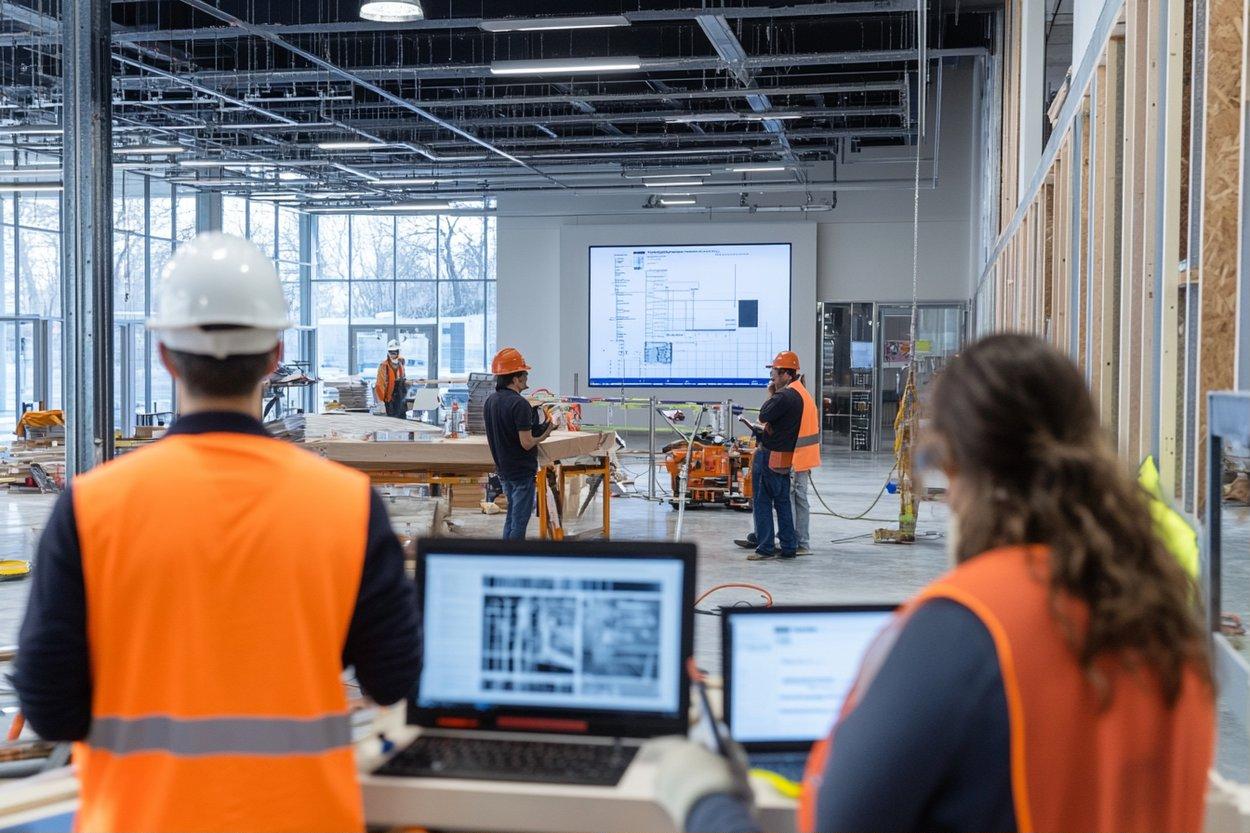Exploring Construction Jobs in France: What to Know Before You Start
Construction jobs in France may offer opportunities for those interested in the trade. While requirements can vary, having basic English skills is often a plus. Learn what to expect, which factors influence the experience, and how others approach this field. Discover more in this article.

The Current State of the French Construction Market
The French construction market has experienced varying levels of growth in recent years. The sector employs over 1.5 million people and contributes significantly to the country’s GDP. Urban development in Paris, Lyon, and Marseille creates consistent demand for construction professionals, while rural restoration projects add diversity to available opportunities. Housing construction, commercial buildings, and public infrastructure all form key components of the industry.
The market typically sees higher activity in spring and summer months, with some slowdown during August when many French businesses traditionally take holidays. Recent government initiatives to improve energy efficiency in buildings have also created specialized demand for workers with expertise in sustainable construction methods and materials.
Required Qualifications and Certifications for Construction Jobs in France
Working in construction in France typically requires recognition of your professional qualifications. For EU citizens, the process is relatively straightforward through the European Professional Card system. Non-EU workers face more stringent requirements and may need to apply for work permits.
Key certifications often requested include:
-
Safety certifications (CACES for machinery operation)
-
Technical qualifications specific to your trade
-
Recognition of equivalent qualifications from your home country
-
Health and safety training certificates
Many French construction companies also value the Compagnons du Devoir qualification, a traditional and prestigious French training system for trades. While not always mandatory, having these recognized qualifications significantly improves employment prospects and potential salary.
Language Requirements and English Skills in Construction
While French remains the primary language on construction sites, the level of English proficiency required varies significantly depending on the employer, project, and your specific role. International firms and large projects, particularly in major cities, may have more English speakers and multilingual teams.
For most positions, basic French communication skills are necessary for:
-
Understanding safety instructions
-
Communicating with colleagues and supervisors
-
Comprehending technical specifications
-
Navigating administrative requirements
English skills in construction can be an asset when working for international developers or on projects with multinational teams. Those with specialized technical skills may find employers more willing to accommodate language limitations, particularly in roles with skills shortages. However, investing in basic French language training before arrival significantly improves job prospects and daily working life.
Finding Building Trade Opportunities in France
Construction job seekers have several pathways to find work in France. The most effective approaches include:
-
Online job portals specific to construction (Indeed France, regionsjob.com, Monster.fr)
-
Specialized recruitment agencies for construction trades
-
Direct applications to construction companies
-
Networking through professional associations
-
Regional employment centers (Pôle Emploi)
Temporary agencies (known as “agences d’intérim”) frequently handle construction recruitment and can be an excellent entry point. Companies like Manpower, Adecco, and Randstad maintain specialized construction divisions. Many successful foreign workers begin with temporary contracts that later convert to permanent positions once they’ve proven their skills and reliability.
Networking remains particularly important in the French construction sector, where personal recommendations carry significant weight. Industry events, trade shows, and professional associations offer valuable networking opportunities.
Salary Expectations and Cost of Living
Construction salaries in France vary widely based on specialization, experience, location, and employer size. Skilled trades typically earn more than general laborers, while specialized roles like crane operators, project managers, and technical specialists command premium rates.
| Position | Experience Level | Monthly Salary Range (Gross) |
|---|---|---|
| General Laborer | Entry-level | €1,600 - €1,900 |
| Skilled Tradesperson | Mid-level | €1,900 - €2,500 |
| Specialized Technician | Experienced | €2,400 - €3,500 |
| Site Supervisor | Experienced | €2,800 - €4,000 |
| Project Manager | Senior | €3,500 - €6,000+ |
Prices, rates, or cost estimates mentioned in this article are based on the latest available information but may change over time. Independent research is advised before making financial decisions.
Cost of living varies dramatically between regions. Paris commands significantly higher living costs than rural areas, but typically offers higher wages to compensate. Housing represents the largest expense, with monthly rents ranging from €400-€600 in rural areas to €800-€1,500+ for modest accommodations in Paris.
Construction workers should also factor in health insurance, transportation costs, and taxes when evaluating job offers. The French social security system provides significant benefits but requires contributions from both employers and employees.
Work Culture and Conditions in French Construction
Work in construction Europe varies by country, with France having distinct characteristics. The typical work week consists of 35 hours, though overtime is common on construction projects with deadlines. French labor laws strongly protect workers’ rights, with strict regulations on working hours, safety procedures, and employment contracts.
Construction sites typically operate Monday through Friday, with occasional Saturday work during critical project phases. Annual leave is generous by international standards, with five weeks standard vacation plus public holidays. Safety standards are strictly enforced, with mandatory protective equipment and regular inspections.
Foreign workers often note differences in work pace and project management compared to their home countries. French construction places strong emphasis on quality and technique, sometimes prioritizing precision over speed. The hierarchical structure on French construction sites may differ from what workers experience elsewhere, requiring some adjustment to communication styles and decision-making processes.
Understanding these cultural nuances helps foreign workers integrate more successfully and can significantly improve job satisfaction and career advancement possibilities within the French construction industry.




